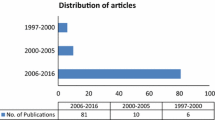Abstract
Textile is one of the largest export and source of foreign exchange in Pakistan. For the last two decades, Textile sector is serving as the backbone for Pakistan economy. Several foreign retailers including Target, Jessie Penny, Wal-Mart, and Kohl’s are outsourcing textile and garments from Pakistan. Along with the quality, these retailers are highly concerned with the ethical and social issues of their suppliers, including child labor, forced labor, compensation, working hours and environment health, and safety. My current study is an applied research, based on the problem, regarding the working hours and its proper management in textile factories, mismanagement of which lead to serious issues during social and ethical standard audits. Repetition of which may consequent in termination of business with suppliers and factories. The research hypothesis is that working off the clock will lead to overtime premium not paid and double book record keeping. As far as ethical and social compliance (SC) is concerned both overtime premiums not paid and double book records are critical issues during SC audit. A sample of 40 suppliers (factories SC audit reports) of Pakistan was randomly selected working with foreign buyers. Secondary data were used to verify the findings based on Audits finding conducted by different third party during a period of 2 years, i.e. Feb., 2010 to Jan., 2012. The results and research findings reflect that during the last 2 years (Nov., 2010 to Oct., 2012) out of 40 factories audit reports 25 factories (62.5 %) were found having working off the clock that also lead to overtime premium not paid. However, double book records were not witnessed in all 40 factories SC audit reports as parallel (falsified) records were not maintained by any factories. The above findings will help the suppliers, factories, and buyers to develop a proactive approach (on buyers end) and proper production planning (on suppliers and factories end) to avoid critical issues and smooth business activities.

Similar content being viewed by others
References
Bernhardt, A., McGrath, S., & DeFilippis, J. (2008). The state of worker protections in the United States: Unregulated work in New York City. International Labour Review, 147(2–3), 135–162.
Bobo, K. (2009). Wage theft in America. New York: New Press.
Burns, N., & Grove, S. (2001). The practice of nursing research: Conduct, critique and utilisation. Philadelphia: WB Standards.
Ehrenberg, R. G., & Schumann, P. L. (1981). Longer hours or more jobs? Cornell studies in industrial and labour relations, no. 22. Ithaca, NY: Cornell University.
Frost, S. (2004). “Asia labour update” of O’Rourke, D. (2000) Monitoring the monitors: A Critique of PricewaterhouseCoopers Labor Monitoring, Department of Urban Studies and Planning, Massachusetts Institute of Technology.
Greenhouse, S. (2008). The big squeeze. New York: Knopf.
Hong Kong Quality Control Center (HKQCC) (2004) Factory audit. Hong Kong: Hong Kong Quality Control Center. http://www.hkqcc.com/services.html. Accessed 24 June 2012.
International Labor Organisation (ILO) (2004) International labour standards. New York: ILO. http://webfusion.ilo.org/public/db/standards/normes/index.cfm?lang=EN. Accessed 24 June 2012.
Juravich, T. & Bronfenbrenner, K. (2005). Introduction: Bringing the study of work back to labor studies. Labor Studies Journal, 30, i–viii. http://digitalcommons.ilr.cornell.edu/cbpubs/21/. Accessed 24 June 2012.
Lee, S., McCann, D., & Messenger, J. C. (2007). Working time around the world: Trends in working hours, laws, and policies in a global comparative perspective, International Labour Office. London: Routledge.
Linder, M. (2002). The autocratically flexible workplace: A history of overtime regulation in the United States (Vol. 8, p. 532). ISBN 09-6738-9992.
Milkman, R., Gonzalez, A. L., & Ikeler, P. (2011). Wage and hour violations in urban labor markets: A comparison of Los Angeles, New York and Chicago. New York: City University of New York.
O’Rourke, D. (2000). Monitoring the monitors: A Critique of PricewaterhouseCoopers Labor Monitoring, Department of Urban Studies and Planning, Massachusetts Institute of Technology.
Oxfam International. (2004). Trading away our rights: Women working in global supply chains. Oxford: Oxfam International.
Rauscher, K. J., et al. (2008). US child labor violations in the retail and service industries: Findings from a national survey of working adolescents. American Journal of Public Health, 98(9), 1693–1699.
Spiller, M., & Polson, D. (2011). “Broken laws, unprotected workers”, violation of employment and labor laws in America’s cities. Retrieved June 18, 2012, from http://www2.ohchr.org/english/bodies/cmw/docs/DGD/BrokenLawsReport_DGD2011.pdf.
Spurgeon, A. (2003). Working time: Its impact on safety and health, International Labour Office, Occupational Safety and Health Research Institute, Korea Occupational Safety and Health Agency.
Stamas, G. (May, 1979) Long hours and premium pay, May 1978. Monthly Labor Review, 102, 41–45.
Stoop, S. (2005). Overtime and excessive overtime: Legal requirements, compliance situations and opportunities for the Turkish (Istanbul) garment industry. Briefing Paper No. 3, Joint Initiative on Corporate Accountability and Workers Rights.
Tsoi, C. (2005). Supply chain management for sustainable development perspective from Greater Pearl River Delta. Rights Creative Commons: Attribution 3.0 Hong Kong. http://hdl.handle.net/10722/27587. Accessed 24 June 2012.
Welford, R., Meaton, J., & Young, W. (2003). Fair trade as a strategy for international competitiveness. International Journal of Sustainable Development and World Ecology, 10(1), 1–13.
Author information
Authors and Affiliations
Corresponding author
Appendix
Appendix


I hereby agree to that above mentioned violation/violations should be improved according to our separately submitted correction plan and time limits.
As an XYZ supplier you own the audit result and are responsible for progress of improvement in the production unit you have chosen for XYZ orders.
Rights and permissions
About this article
Cite this article
Faraz, M., Shamsi, A.F. & Bashir, R. Working Off the Clock and Its Impact. J Bus Ethics 122, 395–403 (2014). https://doi.org/10.1007/s10551-013-1765-4
Received:
Accepted:
Published:
Issue Date:
DOI: https://doi.org/10.1007/s10551-013-1765-4




